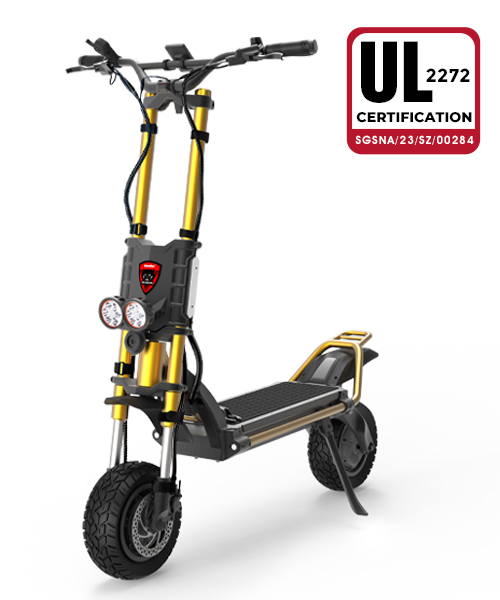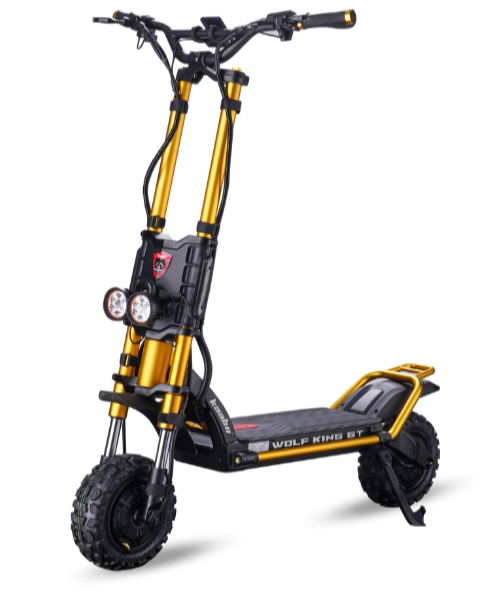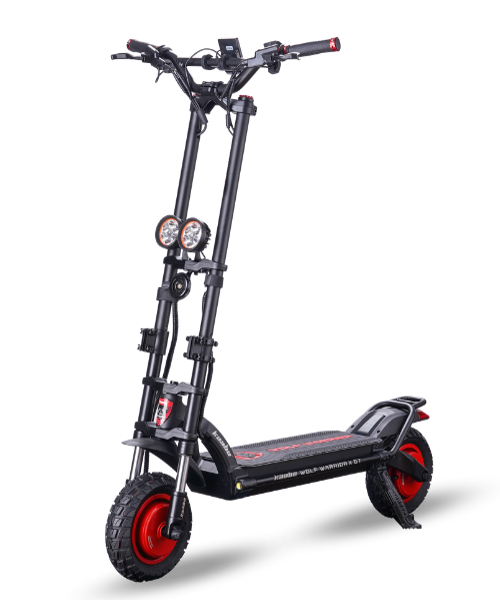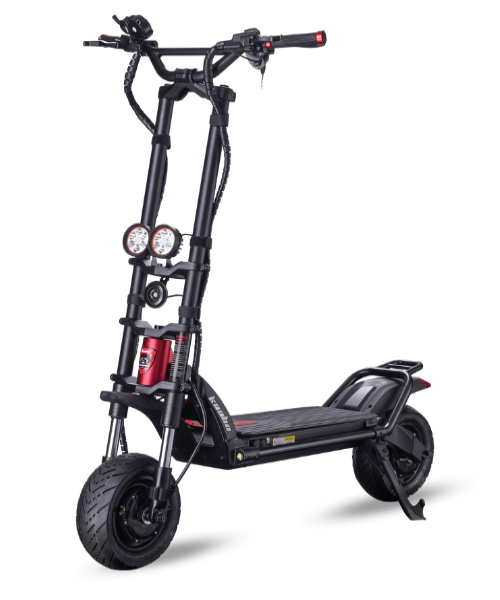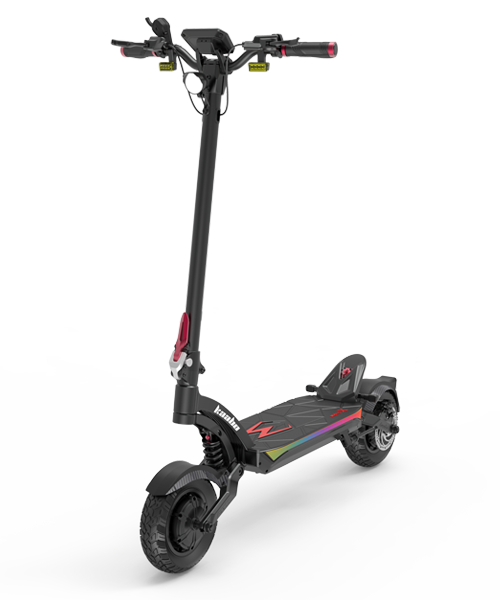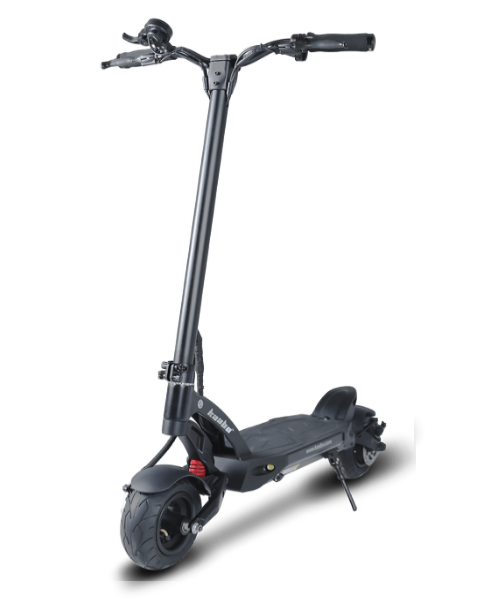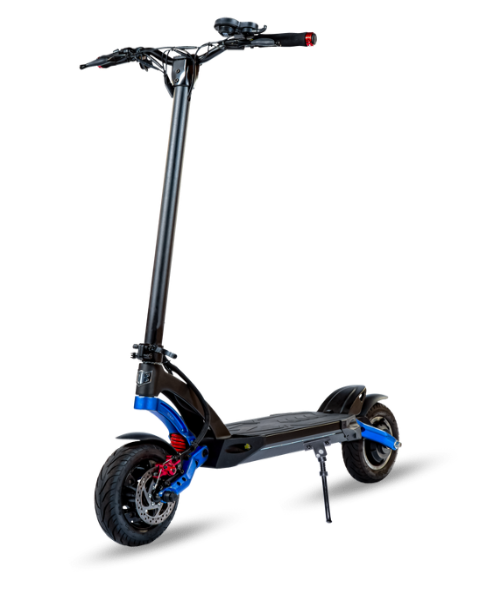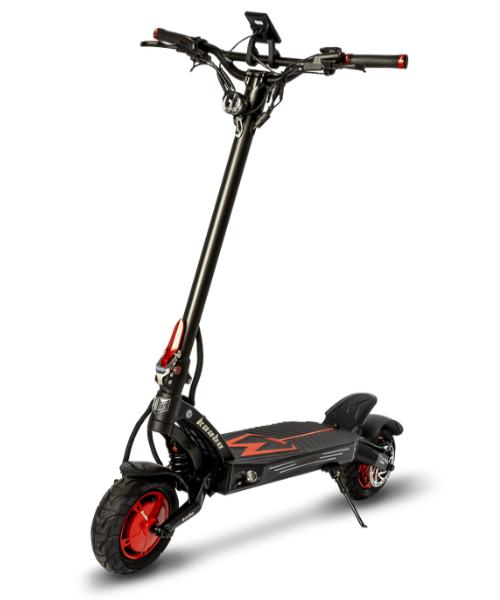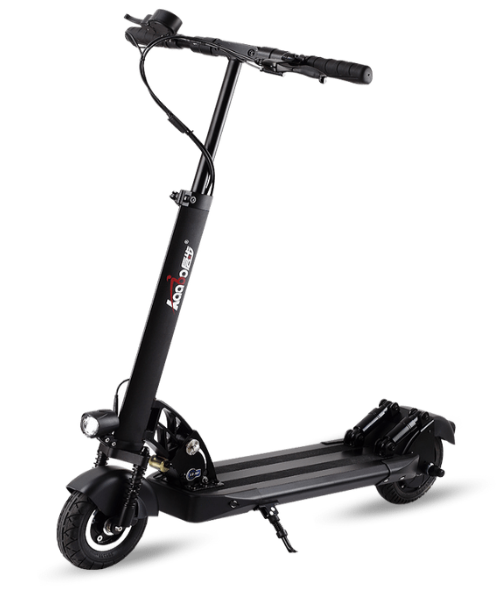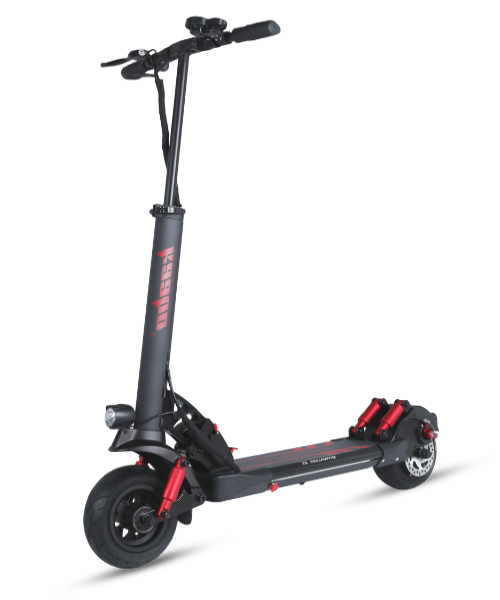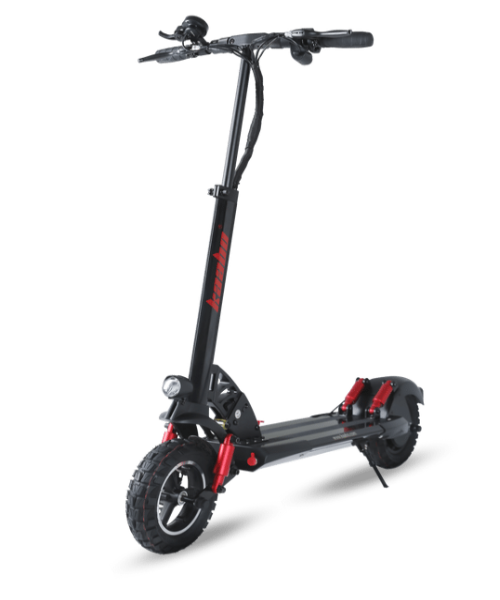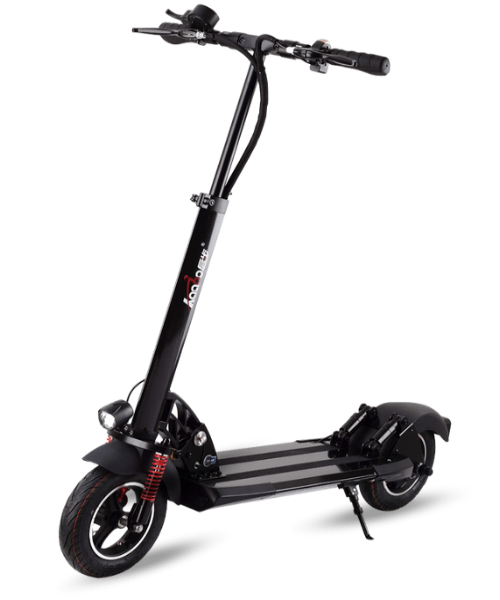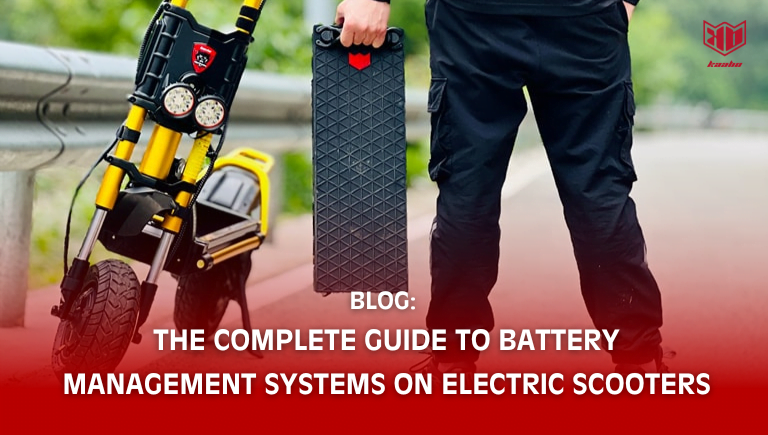
Introduction
Electric scooters battery have taken the world by storm, offering an eco-friendly and convenient mode of transportation. As these scooters become increasingly popular, one crucial element often overlooked is the Battery Management System (BMS). In this comprehensive guide, we will delve into the world of electric scooter batteries and explore the vital role that Battery Management Systems play in ensuring their safety, performance, and longevity.
Chapter 1: Understanding Electric Scooter Batteries
Electric scooters rely on a variety of battery types, with Lithium-ion and Lead-acid being the most common.
Types of Electric Scooter Batteries
- Lithium-ion Batteries: These are popular due to their high energy density, lightweight nature, and longer lifespan compared to other types.
- Lead-acid Batteries: While less common, they are known for their affordability but come with drawbacks like weight and shorter lifespans.
Pros and Cons of Each Battery Type
- Lithium-ion Batteries:
- Pros: High energy density, lightweight, long lifespan, and fast charging.
- Cons: Higher cost, sensitivity to temperature extremes, and safety concerns if damaged.
- Lead-acid Batteries:
- Pros: Affordable, robust, and suitable for certain applications.
- Cons: Heavy, shorter lifespan, and slower charging.
Battery Capacity and Voltage Explained
Understanding the relationship between capacity (measured in ampere-hours – Ah) and voltage (volts – V) in electric scooter batteries.

Chapter 2: The Role of Battery Management Systems (BMS)
Battery Management Systems, or BMS, are the unsung heroes of electric scooters. We’ll explain what a BMS is and how it functions, emphasizing its pivotal role in maintaining safety and performance.
What is a Battery Management System (BMS)?
- A BMS is an electronic system that monitors and manages the charging and discharging of a battery pack.
- It ensures each battery cell operates within safe limits and optimizes their performance.
How Does a BMS Work?
- The BMS continuously monitors voltage, current, and temperature to protect the battery from overcharging, over-discharging, and overheating.
- It can also balance individual cells to maintain uniform performance.
Importance of BMS in Electric Scooter Safety and Performance
- BMS prevents dangerous situations like thermal runaway, which can lead to fires.
- It extends the overall lifespan of the battery pack by preventing damage caused by abuse or neglect.
Chapter 3: Components of a Battery Management System
Unpacking the complex world of BMS components, we’ll break down the battery protection circuit, voltage and current sensors, battery monitoring unit, and communication interfaces, revealing how they work together seamlessly.
Battery Protection Circuit
- This circuit prevents overcharging and over-discharging by controlling the charging and discharging currents.
Voltage and Current Sensors
- Sensors constantly monitor the voltage and current levels of each cell.
Battery Monitoring Unit
- The brain of the BMS, it processes data from sensors and makes decisions to protect the battery.
Communication Interfaces
- BMS often includes interfaces like UART or CAN bus to communicate with the scooter’s main controller.
Chapter 4: BMS Functions and Features
We’ll explore in-depth the functions and features of BMS, including overcharge protection, over-discharge protection, cell balancing, and temperature monitoring. Discover how these features enhance your scooter’s battery life and safety.
Overcharge Protection
- Explaining how the BMS prevents overcharging by limiting voltage and current.
Over-discharge Protection
- Detailing how the BMS safeguards against over-discharging, which can harm battery cells.
Cell Balancing
- How the BMS equalizes the charge across individual cells for optimal performance.
Temperature Monitoring
- The role of BMS in monitoring battery temperature and preventing overheating.
Chapter 5: BMS Installation and Integration
Thinking of installing a BMS in your electric scooter? We’ll guide you through the installation process, highlighting compatibility considerations and addressing common integration challenges.
Steps to Install a BMS
- A step-by-step guide to installing a BMS in your electric scooter.
Compatibility Considerations
- Factors to consider when selecting a BMS to ensure it’s compatible with your scooter’s battery pack.
Common Integration Challenges
- Addressing potential issues you might encounter during BMS installation.
Chapter 6: Maintaining Your Electric Scooter Battery
To ensure your electric scooter’s battery lasts, we’ll share best practices for storage, charging, and recognizing signs of a failing battery, helping you avoid unexpected issues.
Best Practices for Battery Storage
- How to store your electric scooter during periods of non-use.
Charging Tips
- Tips for safe and efficient battery charging.
Signs of a Failing Battery
- Identifying symptoms of a deteriorating battery and when to consider replacement.
Chapter 7: Battery Management System Myths Debunked
In this chapter, we’ll dispel common misconceptions about BMS, clarify its limitations, and underscore the benefits of choosing BMS-equipped scooters.
Common Misconceptions
- Addressing myths like “BMS makes charging faster” or “BMS can fix a damaged battery.”
Clarifying Limitations
- Explaining situations where BMS might not prevent all battery-related problems.
Benefits of BMS-Equipped Scooters
- Highlighting the safety and performance advantages of scooters with BMS.
Chapter 8: Frequently Asked Questions (FAQs)
Curious about electric scooter batteries and BMS? We’ve got you covered with answers to questions like battery lifespan, upgrades, BMS functionality checks, and DIY installations.
What is the Average Lifespan of an Electric Scooter Battery?
- Discussing the typical lifespan of scooter batteries and factors affecting it.
Can I Replace My Scooter’s Battery with a Higher Capacity One?
- Exploring the possibility of upgrading your scooter’s battery for improved performance.
How Do I Know If My BMS Is Functioning Correctly?
- Tips for checking the health and functionality of your scooter’s BMS.
Are There DIY BMS Installation Kits Available?
- Exploring the availability of DIY BMS installation kits for enthusiasts.
Chapter 9: Choosing the Right Electric Scooter with BMS
Purchasing a new electric scooter? Learn what factors to consider when selecting a scooter with BMS features, and compare budget-friendly options to premium models.
Factors to Consider When Buying an Electric Scooter with BMS
- A comprehensive guide to making an informed decision when purchasing a new scooter.
Comparing Popular Electric Scooters with BMS Features
- Spotlighting well-known scooter models equipped with advanced BMS technology.
Budget-Friendly Options vs. Premium Models
- Weighing the pros and cons of different price ranges for BMS-equipped scooters.
Chapter 10: Battery Management Systems and Sustainability
Discover how BMS contributes to eco-friendly transportation, explore recycling and disposal considerations, and understand its role in reducing environmental impact.
BMS and Eco-Friendly Transportation
- Exploring how BMS technology aligns with sustainable mobility.
Recycling and Disposal Considerations
- Responsible disposal practices for scooter batteries and the environmental impact.
The Role of BMS in Reducing Environmental Impact
- How BMS technology can minimize waste and promote sustainability.
Chapter 11: The Future of Battery Management Systems
Get a glimpse into emerging BMS technologies and their potential impact on the electric scooter industry, paving the way for improved electric mobility.
Emerging BMS Technologies and Innovations
- Exciting developments in BMS technology and their implications.
Predictions for BMS Advancements
- Speculating on how BMS technology will evolve and shape the future of electric scooters.
Potential Impact on Electric Mobility
- How advanced BMS systems can revolutionize electric mobility solutions.
Chapter 12: Case Studies
Real-world examples of scooter brands effectively implementing BMS, showcasing the successes and improvements brought about by these systems.
Case Study 1: [Brand Name] Electric Scooters
- An in-depth look at how a specific brand has benefited from BMS technology.
Case Study 2: [Brand Name] Electric Scooters
- Another case study highlighting the real-world impact of BMS on scooter performance and safety.
Chapter 13: Safety Regulations and Compliance
Safety is paramount. We’ll outline safety regulations for electric scooters and BMS, highlight compliance standards, and stress the importance of adherence.
Overview of Safety Regulations
- An introduction to safety regulations governing electric scooters and BMS.
Compliance Standards and Certifications
- The importance of looking for compliance certifications when purchasing scooters.
Adhering to Safety Guidelines
- Why following safety guidelines is crucial for both manufacturers and users.
Chapter 14: Troubleshooting BMS Issues
Explore common problems users face with BMS, and find step-by-step troubleshooting guidance, so you know when it’s time to seek professional help.
Common BMS Problems
- Identifying issues such as inaccurate readings, failure to balance cells, or communication errors.
Step-by-Step Troubleshooting Guide
- A detailed guide to diagnosing and resolving BMS-related problems.
When to Seek Professional Help
- Recognizing situations where expert assistance is necessary.
Chapter 15: User Experiences and Reviews
Read feedback and reviews from electric scooter users benefiting from BMS. Discover their positive experiences and learn about any recurring concerns.
Positive User Experiences
- Real accounts of users who have seen the benefits of BMS in action.
Addressing Recurring Concerns
- Insights into common user concerns and how manufacturers are addressing them.
Chapter 16: Upgrading and Modifying BMS Systems
Thinking of upgrading your BMS? We’ll explore your options, risks, benefits, and whether you should opt for a professional or DIY upgrade.
Upgrading Your BMS
- Factors to consider when upgrading your scooter’s BMS for improved performance.
Risks and Benefits of Modification
- Exploring the potential rewards and challenges of modifying your BMS.
Professional vs. DIY Upgrades
- Weighing the advantages and disadvantages of professional and do-it-yourself BMS upgrades.
Chapter 17: The Economics of BMS-Equipped Electric Scooters
Weigh the costs and benefits of BMS-equipped scooters against non-BMS models, considering long-term savings and economic advantages for scooter-sharing companies.
Cost Analysis of BMS-Equipped Scooters
- Calculating the overall cost of owning and operating BMS-equipped scooters.
Long-Term Savings and ROI Considerations
- How choosing BMS can lead to cost savings over time and a favorable return on investment.
Economic Benefits for Scooter Sharing Companies
- Exploring the financial advantages that BMS-equipped scooters offer to scooter-sharing businesses.
Chapter 18: BMS Maintenance and Servicing
Learn about routine BMS maintenance tasks, find recommendations for servicing and inspection, and discover how to locate qualified technicians.
Routine BMS Maintenance
- Tasks you can perform regularly to ensure your scooter’s BMS stays in top condition.
Recommendations for Servicing and Inspection
- When and how to service and inspect your BMS to prevent issues.
Finding Qualified Technicians
- Tips for locating professionals who can service and repair your BMS.
Chapter 19: BMS in the Context of Electric Mobility Trends
See BMS in the broader context of electric vehicles (EVs), explore its evolution across various electric transportation modes, and understand the synergies between electric scooters and other EVs.
BMS in the Electric Mobility Landscape
- How BMS technology fits into the broader ecosystem of electric mobility.
Evolution of BMS Across Electric Transportation Modes
- Comparing how BMS technology has advanced in various electric vehicles.
Synergies Between Electric Scooters and Other EVs
- Recognizing how electric scooters can complement larger electric vehicles in urban transportation.
Conclusion
In summary, this comprehensive guide has provided you with a deep understanding of Battery Management Systems (BMS) in electric scooters. Armed with this wealth of knowledge, you now possess the insights needed to make informed choices, ensuring the safety, longevity, and optimal performance of your electric scooter’s battery. As electric mobility continues to advance, you are well-prepared to embrace and contribute to the ever-evolving world of sustainable transportation. Stay informed, ride safely, and be part of the exciting future of electric mobility.
Additional Resources and References
For further reading, check out the provided links to in-depth resources and references used throughout this guide. Dive deeper into the fascinating world of electric scooters and BMS technology.








































































